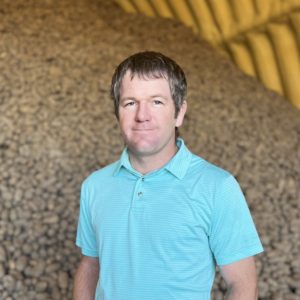Embracing innovation through Regenerative agriculture
How an Idaho family farm has improved its crops with the help of McCain
(Sponsored) Continuing to build their Regenerative agriculture framework, McCain works with farmers across the country to bring smart and sustainable techniques to their farms. Through data collection, education, research partnership and more, McCain plans to implement their practices across 100% of their potato acreage worldwide.
Regenerative agriculture, as defined by McCain, is an ecosystem-based approach to farming. Its primary goals? To improve yield, farmer resilience and overall quality by enhancing biodiversity, reducing the impact of synthetic inputs and improving farmer resilience.

Blake Hansen, farmer at Gen5 Farms and Rodney Hansen Farms in Paul, ID, has worked in the agriculture industry for many years, farming various crops such as potatoes, wheat, barley and sugar beets. Innovation has always played a significant role in his family farm’s history — Regenerative farming fit right in.
Hansen focuses on fertility management within his potato production, specifically embracing the “Four R’s” of nutrient stewardship — Right Source, Right Rate, Right Time and Right Place. With this in mind, Regenerative agriculture techniques have helped Hansen integrate new GPS systems, adding more in-depth mapping and sampling of their soils and adding a yield monitor to their potato harvester, helping measure the effectiveness of their fertility plan.
“We feel that Regenerative farming has resulted in more uniformity in our fields,” Hansen said. “I am looking forward to finding ways to implement more Regenerative agriculture practices such as cover crops into our operation. We need to find and implement practices that will reduce our inputs such as fertilizer, chemicals, water, labor and fuel.”
According to Hansen, his farm has shown positive results with variable rate fertility and has seen improvements in rotational crops. With this progression, Hansen is confident Regenerative agriculture will impact generations.
“I do think that it will impact generations to come,” Hansen said. “The challenge will be finding the right practices to maintain a sustainable future for each farming operation.”
Hansen says his biggest challenge with Regenerative agriculture is patience. It takes time to develop new practices and adapt to unpredictable events such as climate change. Through these challenges, Hansen is excited to further develop his farm through sustainability with the help of McCain.
© 2023 McCain To learn more about McCain visit https://www.mccain.com/sustainability/smart-sustainable-farming/







